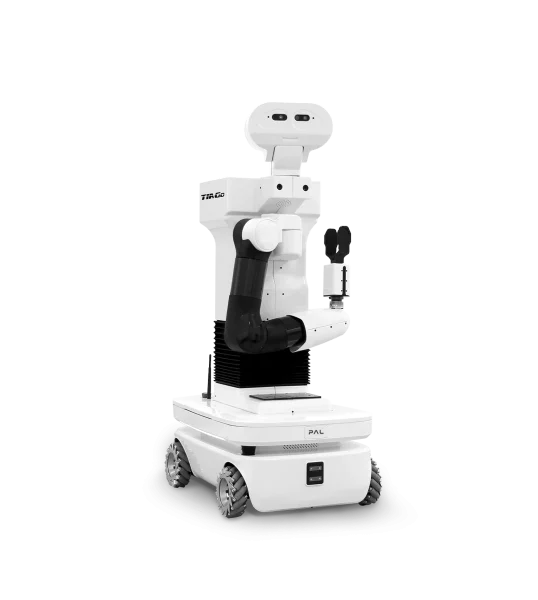Our Role
PAL France plays a crucial role in COCOPIL, contributing its expertise in robotics, human-robot interaction (HRI), and collaborative autonomous systems. As a key industry partner, PAL France supports the integration of cobots (collaborative robots) into dynamic environments where they can interact naturally with human colleagues and learn new tasks through conversation rather than traditional programming.
The company provides TIAGo, a mobile manipulator with an advanced robotic arm, as the primary robotic platform for testing and development. This allows researchers to experiment with real-world human-robot collaboration and validate the effectiveness of natural language-based programming in industrial settings.
Additionally, PAL France works closely with research institutions and other industrial partners to bridge the gap between theoretical AI advancements and practical deployment in real-world robotics applications.
Key responsibilities
PAL France’s primary contributions to COCOPIL include:
- Providing the TIAGo robot platform for testing collaborative robotic interactions.
- Developing and maintaining the robotic hardware and software for the project, ensuring that cobots can perform tasks with human workers in a natural and efficient manner.
- Supporting the integration of learning-based robotic programming where cobots understand, adapt, and execute complex tasks based on verbal instructions from humans.
- Enhancing robot interaction capabilities, focusing on perception, grasping, and manipulation, ensuring robots can autonomously perform assembly, logistics, and maintenance tasks.
- Validating robotic interaction in real-world conditions, refining the cobots’ ability to operate in industrial environments such as manufacturing and maintenance in the aerospace sector.
- Collaborating with Airbus, ANITI, and LINAGORA to enhance multimodal interaction, combining robotic perception, language comprehension, and motor control into a single seamless system.





